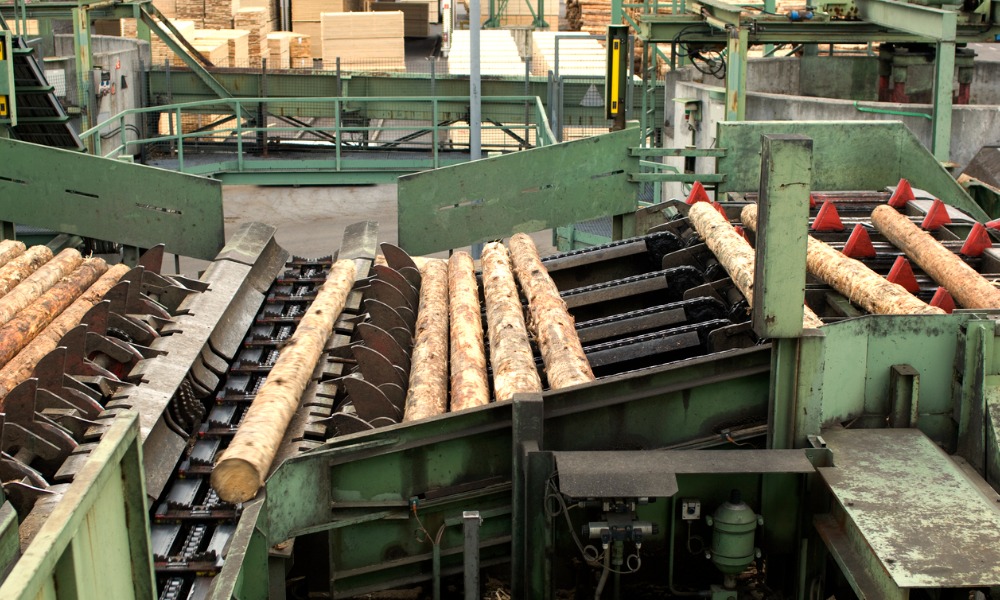Workers should have followed 'work now, grieve later' rule

An Ontario arbitrator has reduced the suspensions of three sawmill workers who refused to work overtime that was a normal practice at the end of a particular shift.
The three workers were employed with Greenfirst Forest Products at its sawmill in Cochrane, Ont., on the maintenance team. The first and second worker were millwrights with four and 10 years of seniority, respectively, and the third was an electrician with 12 years with the company.
For more than 20 years, it was normal practice that at least one millwright and one electrician on the Friday No. 2 shift always worked overtime between 11 p.m. and 12:30 a.m. to provide maintenance coverage until the end of the production shift. The maintenance team usually decided among themselves who would work the overtime.
The collective agreement’s article on hours of work stated that employees who were willing to work overtime were required to give their names to their supervisors each week, and maintenance employees “may be scheduled to work on Saturday and Sunday and shall be paid at the prevailing overtime rates for such work.”
The collective agreement also required that hours of work must be scheduled and posted before 3 p.m. on the Thursday of the previous week.
Workers refused overtime
The three workers were working the No. 2 shift on Friday, Oct. 22. The first worker wasn’t expecting to work past 11 p.m. as he had plans to go away early the next morning. The second worker received a text from his wife between 4 p.m. and 6 p.m. about buying a snow machine and they planned to leave early in the morning to see it. Both workers told each other that they couldn’t stay past 11 p.m.
After discussing it with a union steward, the two workers decided that there wasn’t anything in the collective agreement saying that the overtime was mandatory.
The third worker, the electrician, also planned to go away early the next morning for a long drive to pick up his son at university.
The three workers approached their supervisor shortly before 11 p.m. to say they were leaving. However, according to the supervisor, they were leaving to make a point about scheduled weekend overtime. The workers denied this.
Supervisor ordered overtime
The supervisor said that the electrician and one of the millwrights had to stay at work until 12:30 a.m., repeating the order two more times. However, all three left at 11 p.m., leaving the maintenance team short-staffed.
Greenfirst investigated and suspended each worker for three days without pay for leaving work without advance notice or authorization when they knew that the maintenance crew worked until the completion of the production shift on Friday nights.
The disciplinary letter noted that it was a co-ordinated action between the three of them that “could be construed as an unlawful strike which can be grounds for the termination of your employment,” but the company opted not to go that route.
The union grieved the suspensions, contending that the workers were within their rights under the collective agreement to refuse to work overtime, as it was voluntary. Any longstanding practice didn’t make the overtime mandatory, the union said.
Greenfirst argued that the 1.5 hours of overtime on Fridays was mandatory for maintenance employees as set in past practice, and it was a co-ordinated effort between the three workers. The company also said that the workers violated the cardinal rule in labour relations – “work now, grieve later” – and were insubordinate when they disobeyed a direct order from their supervisor.
Employment standards issue: union
The union countered that the “work now, grieve later” rule didn’t apply, as it was an invitation to breach employment standards legislation around overtime.
The arbitrator noted that the “work now, grieve later” rule is a “foundational principle” in collective bargaining relationships that protected workplace productivity and employer authority. There are exceptions to the rule, but generally only when the health and safety of an employee is at risk or the grievance process can’t provide adequate relief to employees.
In this case, the supervisor ordered the workers three times to stay at work and they refused to comply. The reason for the order was to provide necessary maintenance coverage until the end of the production shift, which fell within the company’s management rights, the arbitrator said.
The arbitrator also noted that the collective agreement indicated that overtime was voluntary, but this protocol was not applied to the maintenance team on Friday nights. The practice of the maintenance team deciding among themselves who would work the overtime indicated that they considered it voluntary, the arbitrator said.
Didn’t give reasonable notice
However, the workers’ failure to give reasonable notice about their unavailability to work overtime that night for personal reasons gave Greenfirst reason to think that they could work the voluntary overtime, as they knew they were working the No. 2 Friday shift when the schedule was posted the previous week, said the arbitrator.
The arbitrator found that the workers’ health and safety were not at risk from the direction to work overtime and the grievance procedure could provide adequate relief to the worker, even if there was a violation of employment standards legislation. As a result, the “work now, grieve later” rule applied.
As for Greenfirst’s allegation that the worker’s action was co-ordinated, this did not hold up to the evidence, said the arbitrator, pointing out that each worker had his own personal plans and they didn’t discuss not working overtime until well into the shift, after which they had each already decided they weren’t staying.
The arbitrator determined that discipline was appropriate for the workers’ insubordination, but three days was excessive. The arbitrator reduced the suspension for each worker to one-and-a-half days. See Greenfirst Forest Products Inc. Cochrane Sawmill and United Steelworkers Local 1-2010, 2023 CanLII 103261




